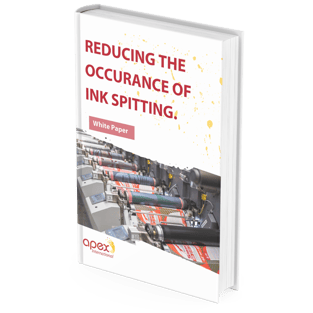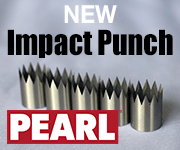Reducing the Occurrence of Ink Spitting
- Published: March 15, 2023
 What is Ink Spitting?
What is Ink Spitting?
Ink spitting is caused by a buildup of ink on the opposite side of the blade, which then leaks out from the blade or contact point, creating teardrop shaped flaws in the print. Ink spitting is a random phenomenon that impacts the overall quality and profitability of an otherwise perfect print.
Why Does it Happen?
Ink spitting has been an industry headache since the introduction of UV inks into the flexo industry. With problems ranging from mild to severe, ink spitting is a frustrating issue that can vastly reduce the quality of the final print, increase waste, and decrease productivity. The industry is always looking for ways to reduce ink spitting, but so far no one has been able to pinpoint the exact cause. There are several theories as to what might reduce or increase the changes of ink spitting, including:
- Doctor blade thickness
- Doctor blade angle
- Ink temperature and flow
- Anilox engraving
- Anilox surface finish
- Press set up
- Press speed

In truth any number of these alone, or in combination, can contribute to ink spitting. This creates a seemingly endless list of solutions for printers to try, which can be time consuming and costly.
So, Apex decided to put some of these theories to the test, in a bid to contribute useful information to the ink spitting conversation, saving printers time, materials and money.
Do you want to learn more? In this white paper, we show you step by step the root cause of ink spitting, how different engravings influence the ink spitting, and what you can do to reduce this expensive and frustrating printing fault.










